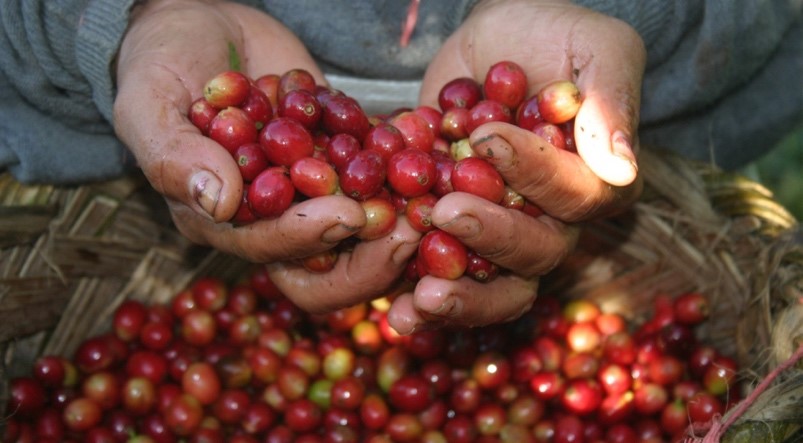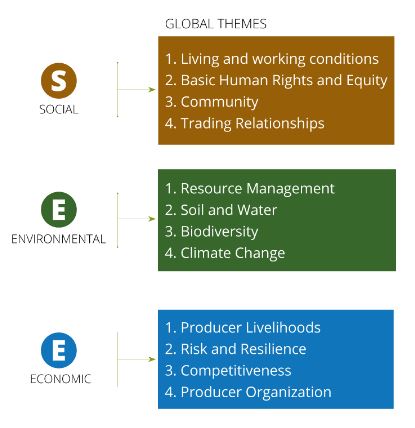
COSA is expanding its indicator database to include more topics and to facilitate greater access by researchers, development organizations and others who conduct evaluation or management of sustainability projects. The new content for our Performance Monitoring indicators (available on our website) is displayed as technical sheets that greatly expand the understanding of the specific metrology, the scientific basis or background for an indicator, how to apply it and even sample questions for a survey. Soon, the entire global set of indicators will also have accompanying expanded content for a greater technical understanding how to use globally comparable and well-vetted indicators for a more accurate understanding of key sustainability issues.
Broad applicability and global acceptance are critical features for sustainability indicators so the broad array of COSA indicators align with the dozens of important multilateral and multi-stakeholder accords and instruments (e.g. ILO, SDG, OECD, etc.). In a global participatory process, hundreds of experts and practitioners covering every dimension and perspective of sustainability designed and evaluated the indicators. Scientific rigor is a key feature of COSA indicators, yet they are also practical and can be obtained at a reasonable cost using lean methods that are respectful to farmers and communities.
To measure what matters, users can select thematic (Cooperative, Youth or Next Gen, Gender, etc.) or crop-specific indicators (coffee, tea, cotton, food crops) and many are interchangeable for great levels of consistency. A brief sampling includes:
• Gender – Although gender empowerment and equity are already intertwined within COSA indicators, the additional specifically gender-oriented indicators address topics such as Access to Resources, Decision Making at the farm and the household, Women’s Participation in producer and community organizations and more.
• Producer Organizations – The effectiveness of Producer Organizations is critical to businesses that rely on them in their supply chain as well as to millions of farmers who rely on them for processing, marketing, and other necessary services. Yet Producer Organizations can be problematic. More than 30 experts and institutions contributed to indicators that facilitate a standardized assessment to quickly understand the key characteristics of sustainable and effective Producer Organizations. This diagnostic also suggests simple ways for them to be more effective and successful.
• Landscape – An improved, common understanding of a productive landscape results in better-informed investments by the public and private sectors. Further, it increases understanding of demonstrable and scalable sustainability outcomes for producers. We developed the approach to the social and economic landscapes and integrated that with the environmental tools developed by our partner Conservation International. Together, these offer an innovative and unique blending of big data with small or local data to deeply understand the dynamic in productive systems and to identify the drivers of change and development. Currently in the last stages of piloting, the full approach will be publicly available soon.

The Committee on Sustainability Assessment (COSA) is a consortium of institutions fostering effective ways to measure and understand sustainability in the agri-food sector. During our Partner Spotlight from 23-27 October 2017, we'll be examining pragmatic ways COSA metrics are driving innovations and sustainability practices, through the applications of tools ranging from impact assessments to performance monitoring. As part of the Partner Spotlight, a webinar on “Effective Tools for Understanding, Managing and Accelerating Impact” will be held on Thursday October 26th at 15:00 Rome time (13:00 GMT).
Metrics is a very relevant area of inquiry for the Partners in GFAR, who are embarking on a Collective Action to develop an "Innovative Approach to New SDG Metrics for Agri-food Innovation."
GFAR Secretariat is turning the spotlight on the work and Collective Actions of Partners in GFARwho share in our mission to strengthen and transform agri-food research and innovation systems globally. Not a GFAR partner yet? Join now!
